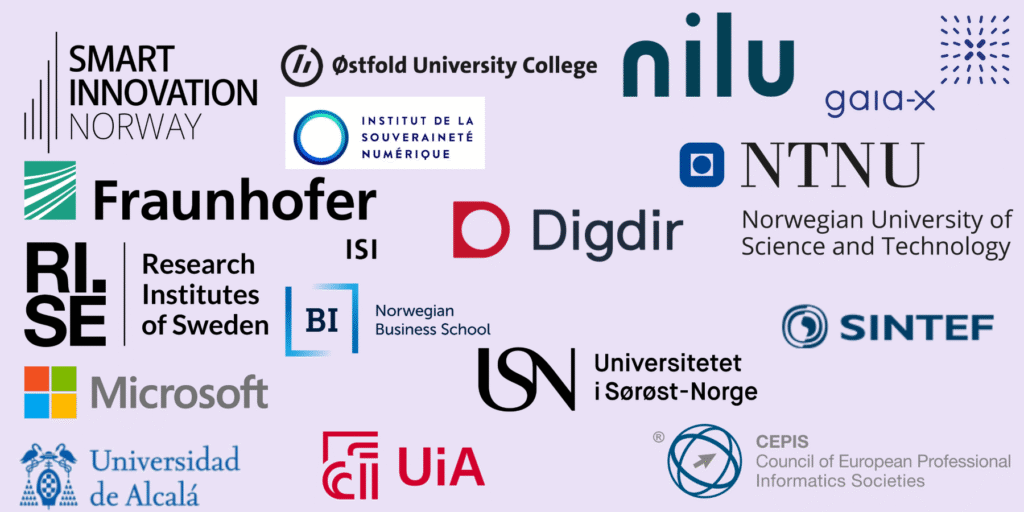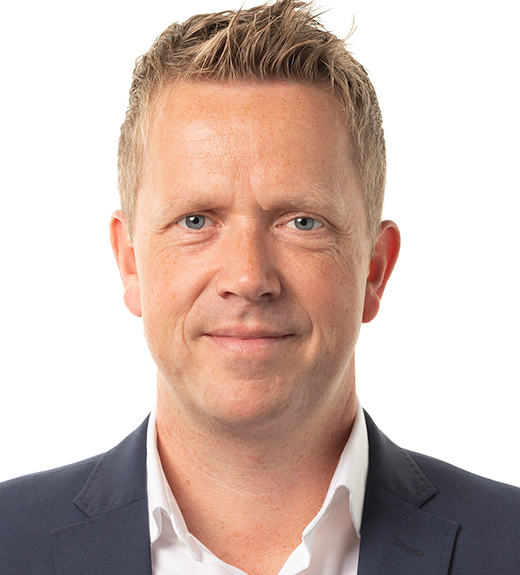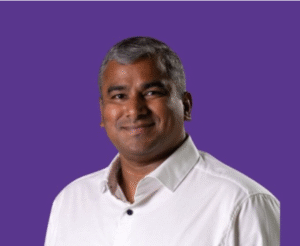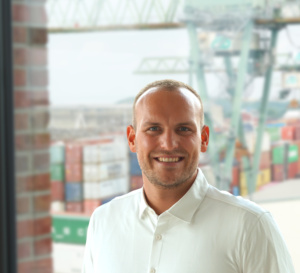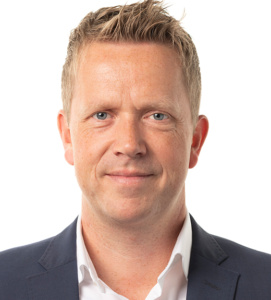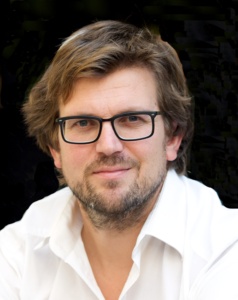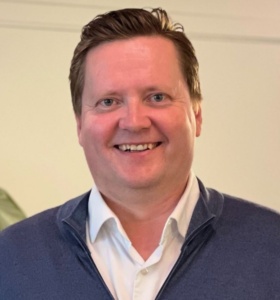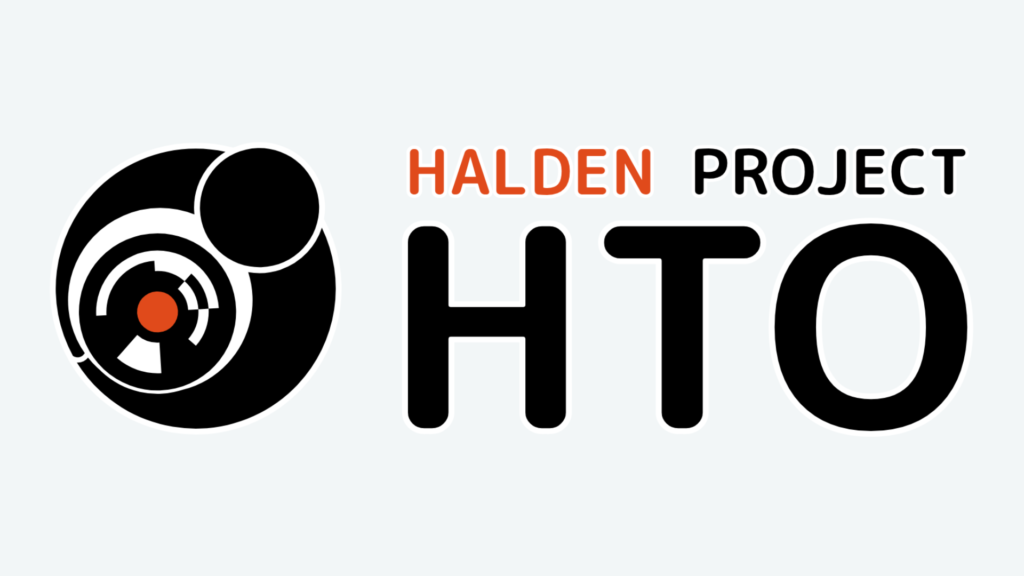Join experts from industry, academia and the public sector to explore the multifaceted aspects of digital sovereignty and its implications for infrastructure, governance, and innovation.
This shift is driving new technologies: secure data spaces, autonomous cloud services, distributed identity systems, and interoperable digital infrastructures, especially across the public sector. With growing geopolitical tensions and heavy reliance on non-European tech providers, Europe is stepping up, pushing for digital sovereignty through bold regulation and forward-thinking innovation.
As digital infrastructure and data become central to how our societies function, the question of who controls them has never been more important.
Key note speaker
Inaugural Speech
The Minister of Digitalisation and Public Governance is responsible for ICT and public administration policy, electronic communication, state employer policy, state building and property management, the administrative responsibility for the County Governors, and work related to the Sustainable Development Goals.
Full Week Program
The 2025 Digital Sovereignty Conference brings together
industry, academia and public sector to explore these
themes.
| Date and day | Theme | Subjects |
|---|---|---|
|
27-28th October
|
Pre Conference: FIWARE Tech- Training
|
Pre-conference workshop by FIWARE on technology and standards leveraging Digital Sovereignty
|
|
29th October
|
Industry Day
|
Insights from industry, research and public sector.
|
|
30-31th October
|
Academic Presentations
|
• Human-Centric Digital Sovereignty
• Industry & Innovation Impact • Digital Ecosystems & Governance • National Digital Sovereignty • Societal Impact, Geopolitics & Trust |
See full programs for each day below.
Pre-Conference Workshop: FIWARE Tech-Training
Monday 27th October; Technical Deep Dive with FIWARE
Get hands-on with FIWARE’s core technologies in this practical training session led by Technical Evangelist Jason Fox. Learn how to work with NGSI-LD, smart data models, IoT integration, machine learning, and MLOps to build trusted, interoperable data spaces.
Technical Training by Jason Fox – Technical Evangelist at the FIWARE Foundation
| Time | Headline | Topic |
|---|---|---|
|
09:00-09:30
|
Welcome Coffe
|
|
|
09:30 – 11:30
|
FIWARE in the Data Plane: Background and Core Concepts
|
• Introduction to FIWARE
• JSON-LD and Linked Data • Smart Data Models • Basic NGSI-LD – CRUD/Subscriptions |
|
11:30 – 12:00
|
Coffe Break
|
|
|
12:00-13:00
|
Extending NGSI-LD, Distributed Operations
|
• Registrations
• Solving the Challenges of Distributed Operations within Data Spaces • Temporal, Language Maps, Raw JSON, Multi-Relationship |
|
13:00-14:30
|
Lunch Break
|
|
|
14:30-16:00
|
Practical Applications – Machine Learning, MLOps & FIWARE
|
• Strategies for Data Persistence
• Draco/Cygnus • Big Data and Stream Processing • Machine Learning with FIWARE • Towards MLOps • Real-time interference |
|
16:00-16:30
|
Coffee Break
|
|
|
16:30-18:00
|
Practical Applications – Connecting to IoT
|
• Integrating IoT Agents using NGSI-LD
• Practical 1 – NGSI-LD Exercises • Practical 2 – Connection device. Displaying Data |
Tuesday 28th October; Technical Training
Discover how FIWARE drives digital sovereignty and business innovation. The morning covers secure distributed architectures, sovereign data spaces, and AI-powered monetization. In the afternoon, FIWARE Foundation CEO Chandra Challagonda shares insights on unlocking cross-domain opportunities in the data economy.
Get ready for technical Training by Jason Fox – Technical Evangelist at the FIWARE Foundation and business Workshop by Chandra Challagonda, CEO at FIWARE Foundation.
| Time | Headline | Topic |
|---|---|---|
|
09:00-09:30
|
Welcome Coffee
|
|
|
09:30 – 11:30
|
FIWARE in the Control Plane – Understanding Distributed Security and Data Spaces
|
• IDM + PEP + PDP, XACML
• How to secure architectures • Mechanisms of Distributed Trust • FIWARE Data Space Connector |
|
11:30 – 12:00
|
Coffe Break
|
|
|
12:00-13:00
|
Monetising Services – Use of FIWARE with LLMs
|
• Monetisation of Services
• DSP • Talking with your Smart Solution • Practical 4 – LLM |
|
13:00-14:30
|
Lunch Break
|
|
|
14:30-16:00
|
Digital Sovereignty with FIWARE – Part I
|
1. Digital sovereignty as a strategic imperative
2. From data spaces to value ecosystems 3. Trust, governance, and security frameworks 4. FIWARE technology stack in action |
|
16:00-16:30
|
Coffee Break
|
|
|
16:30-18:00
|
Digital Sovereignty with FIWARE – Part II
|
1. AI enablement through FIWARE
2. Collaborative ecosystem engagement 3. Open source as a sovereignty enabler 4. Business impact of digital sovereignty |
Prerequisites
For the Strategic Session: No technical prerequisites are required. A general
interest in digital transformation, business strategy, and innovation is beneficial.
For the Technical Session: Participants should have basic knowledge of RESTJSON technologies, data modelling, and cloud-based solutions (e.g.,
Docker/Kubernetes). Familiarity with basic programming and APIs is also
recommended.
Industry Day – fresh insights from top voices
| Time | Headliner | Topic |
|---|---|---|
|
09:00-09:20
|
Institute for Energy Technology
|
Welcome
|
|
09:20 – 09:30
|
Karianne Tung, Minister of Digitalisation and Public Governance, Norway
|
Inaugural Speech
|
|
09:30 – 09:55
|
Christopher Wilson, Excutive Director, MyData
|
The link between individual data sovereignty and Europe’s digital sovereignty
|
|
09.55-10:20
|
Daniel Melin, Strategies and Business Developer, Safespring
|
EuroStack – The European Industry response for European Digital Sovereignty
|
|
10:20-10:45
|
Coffe Break
|
|
|
10:45-11:05
|
Chandra Challagonda, CEO, FIWARE
|
Digital Sovereignty for AI and Governance: From Principle to Practice
|
|
11:05-11:25
|
Alberto Palomo, Chief Strategy Officer, Gaia-X
|
*aaS service transparency as foundation of digital sovereignty
|
|
11:25-11:45
|
Panel Discussion
|
The role of digital soveregnty in Europe
|
|
11:45-12:30
|
Lunch Break
|
|
|
12:30-12:50
|
David Hansen, Enterprise Public Sector Manager, Microsoft
|
Becoming Frontier: AI-Operated Transformation in the Age of Digital Sovereignty
|
|
12:50-13:10
|
Leif B. Paulsen, Executive Vice President, Move
|
Move to Digital Control
|
|
13:10-13:30
|
Audun Aagre, Senior Advisor, Norwegian Media Authority
|
Securing integrity on social media platforms
|
|
13:30-13:50
|
Per Olav Nyborg, CEO, Traq
|
From standards to trust: Why Traq was recognised by the European Commission
|
|
13:50-14:10
|
Marius Johannes Hupperz, Senior Researcher, Fraunhofer-Institut für Software- und Systemtechnik
|
How Data Trustees Can Facilitate the Digital Sovereignty of Europe
|
|
14:10-14:30
|
Scott Russpatrick, Strategic Advisor, University of Oslo
|
Enabling Digital Sovereignty through Digital Public Goods: A Case Study from 25 years of DHIS2.
|
|
14:30-14:50
|
Coffe break
|
|
|
14:50-15:10
|
Petter Kvalvik, Strategic Advisor, Digital Sovereignty, Institute of Energy Technology
|
Digital sovereignty in road operations
|
|
15:10-15:30
|
Truls Unholt, Knowit
|
Creating shareholder value from data assets
|
|
15:30-16:00
|
Institute for Energy Technology
|
Summary
|
| 30.10.2025 | Invited Keynotes. It will be followed by Presentations on Accepted Papers. | Detailed Program will be Updated as soon as possible |
| 31.10.2025 | Paper Presentations in the First Half. In the Afternoon, Oslo City and Fjord (Walking/boat) Tour/ Networking. |
Detailed Program will be Updated as soon as possible |
Call for papers
We have five tracks in ICDS 2025. Papers in any of these areas, especially with the following keywords covering and related to Digital Sovereignty, are welcome to be submitted.
Keywords: Artificial Intelligence, Computational Intelligence, Human-Centric AI, Human-AI Teams, Sovereignty, Internet of Things, Sustainable Development Goals, Artificial Intelligence of Things, Sustainability, Big Data, Data Analytics, Machine Learning, Deep Learning, Intelligent Systems, Cloud Computing, Edge Computing, Blockchain, Digital Autonomy, Federated Systems, Cybersecurity, Digital Trust, Trustworthiness, Resilience
Track 1: Human-Centric Digital Sovereignty
- Digital Empowerment
- Privacy
- Data Altruism
- Incentives for Sharing Digital Assets
- Dynamic Consent
- Ethical Considerations
- Self-Sovereignty
- Co-Decision
- Transparency and Traceability
- Usage Rights
- Personal Data Spaces
- Human-Centric AI
- Human-AI Team Collaboration
Track 2: Industry and Innovation Impact
- Use of Human-Centric AI and DS in Industry
- AI for National Security and Digital Sovereignty
- Ensuring Cyber Resilience
- Digital Sovereignty in Business: Challenges and Strategies
- Legal Implications of Human-Centric AI and DS
- Policy Frameworks for Digital Sovereignty
- Improving Patient Care and Public Health with Human-Centric AI
- Use of AI and DS in Banking
- Impact of Artificial Intelligence in Industry
- Computational Intelligence Applications
Track 3: Digital Ecosystems and Governance
- Interoperability
- Portability
- Reference Architectures
- Digital Borders and Territories
- Data Spaces
- Cloud-to-Edge Continuum
- Decentralized Identities
- Enhancing Governance and Service Delivery through AI and DS
- Governance Models, Policies, Laws, Regulations, and Compliance
- Trust Anchors
- Business Models
- Data Valuation
- Smart Contracts
- Intelligent Systems Governance
- Decentralised Autonomous Organizations (DAOs)
Track 4: National Digital Sovereignty and Societal Impact
- National AI Capabilities
- National Security Considerations
- Economic Considerations
- Control Over and Autonomy in National Digital Assets
- Resilience and Risk-Based Approaches for Digital Sovereignty
- Technology Independence
- Strategies in a Multi-Polar World
- Addressing Societal Inequalities with Human-Centric AI and DS
- Environmental Sustainability
- AI Solutions for Climate Change and Resource Management
- Emerging Trends and Challenges in Human-Centric AI and DS
- Global Cooperation for Ethical AI and DS
Track 5: Geopolitics and Trust
- Digital Trust as a Geopolitical Asset
- Trust Frameworks for Cross-Border Data Flows
- Sovereign Digital Identities and International Trust Systems
- Trust Anchors, Data Intermediaries, and Dataspace Operators
- Platform Power and Algorithmic Influence in the Global Order
- Disinformation, Information Integrity, and Geopolitical Influence
- The Geopolitics of Global Digital Value Chains and Ecosystems
- Digital Sovereignty in a Fragmented and Multipolar World
- Cyber Diplomacy and Strategic Autonomy in the Digital Sphere
- Extraterritoriality and the Global Impact of National Digital Regulations
- Trusted Infrastructures and Resilience in Cross-Jurisdictional Systems
- Institutional Innovation for Global Trust and Governance
- Digital Non-Alignment and Sovereignty for Emerging Economies
- Environmental and Ethical Implications of Geopolitical Tech Rivalries
- Global Standards vs. Local Control: Trust in International AI and Data Systems
Submission
The ICDS 2025 conference is now in the process of soliciting submissions of original and innovative papers. Prospective authors are invited to submit papers in core and/or related areas of digital sovereignty. The detailed list of topics can be found in the ‘Call for Papers’. Each paper will be reviewed by three experts from the International Program Committee.
Authors must submit an original full paper, 6–10 pages for Procedia Computer Science, that has not been previously published. All contributions must be written in English. Submissions will be evaluated based on relevance to conference themes (digital sovereignty, cybersecurity, data governance), originality and novelty, technical quality and rigor, clarity and organization, impact and significance, and, where applicable, ethical and responsible research practices, especially in areas such as AI and data use.
Submissions should be made through Easychair.
Submission Guidelines and Review Process
Submissions to ICDS 2025 will follow a rigorous and transparent review process to ensure high-quality contributions. After the submission deadline, all papers will be screened by the editors for relevance and baseline quality. Suitable submissions will then be peer-reviewed by at least three independent experts. The editors will carefully evaluate the reviews and make recommendations based on consensus and merit. Finally, accepted papers will be reviewed by the chairs’ Steering Committee and Honorary Chair for final confirmation. Our goal is to maintain fairness, academic integrity, and constructive feedback throughout the process.
Important Dates
| Paper Submission | 20th September. 2025 |
| Author Notification | October 10, 2025 |
| Registration Due and Camera-Ready Deadline | October 15, 2025 |
| Conference | October 29 – 31, 2025 |
Previous ICDS editions
Publication: Elsevier Procedia Computer Science
Registration Fees
| Registration | Early Bird Registration before 10.10.2025* | Late Registration (23.10.2025) |
| Pre Conference Event- FIWARE Tech Training (27-28 Oct) | 500 € / 6000 NOK | |
| Regular Author(29-31 Oct) | 425 € / 5000 NOK | 525 € / 6200 NOK |
| Additional Paper | 300 € / 3500 NOK | 300 € / 3500 NOK |
| Attendees (Public Sector, Industry and Businesses)(29-31 Oct) | 350 € / 4000 NOK | 350 € / 4000 NOK |
| Attendees (Public Sector, Industry and Businesses)(29 Oct) | 250 € / 3000 NOK | 250 € / 3000 NOK |
Please register here. https://ife.pameldingssystem.no/icds2025
Conference Committee
Honorary Chair
Bjørn Axel Gran, Institute for Energy Technology, Norway
Sokratis Katsikas, NTNU, Norway
General Chairs
Petter Kvalvik, Institute for Energy Technology, Norway
Sanjay Misra, Institute for Energy Technology, Norway
Industrial Loaison Chairs
Petter Kvalvik, Institute for Energy Technology, Norway
Per-Arne Jørgensen, Institute for Energy Technology, Norway
Finance Chair
Karianne Hauge Bjugan, Institute for Energy Technology, Norway
Registration Chair
Lars Nagelhus-Arnesen, Institute for Energy Technology, Norway
Steering Committee
Tomas Eric Nordlander, NILU, Norway
Vasileios Gkioulos, Norwegian University of Science and Technology, Norway
Aida Omerovic, USN, Norway
Kai Morgan Kjølerbakken, Institute for Energy Technology, Norway
International Advisory Committee
Ulrich Ahle (CEO, Gaia-X), Belgium
Boris Otto, Fraunhofer, Germany
Chandra Challangonda (CEO, FIWARE), Finland
Thomas Ploug, Alborg University, Denmark
Raj Buyya, University of Melbourne, Australia
Mohammad S. Obaidat, The University of Jordan, Amman, Jordan
Matthew Adigun, University of Zululand, South Africa
Haugen, Øystein, Østfold University College, Halden, Norway
Program Committee Chairs
Sanjay Misra, Institute for Energy Technology, Norway
Robertas Damaševičius, Silesian University of Technology, Poland
Rytis Maskeliunas, Kaunas University of Technology, Lithuania
Murat Koyuncu, Atilim University, Turkey
Lalit Garg, University of Malta, Malta
Local Chairs
Sabarathinam Chockalingam, Institute for Energy Technology, Norway
Sizarta Sarshar, Institute for Energy Technology, Norway
Mohsen Toorani, University of South-Eastern Norway, Norway
Nadia Saad Noori, University of Agder, Norway
Monica Kristiansen Holone, Østfold University College, Halden, Norway
International Conference Committee (updating)
Sanjay Misra, Institute for Energy Technology, Norway
Brij Gupta, Asia University, Taiwan
Giorgio Pedrazzi, University of Brescia, Italy
Manju Khari, JNU, India
Per-Arne Jørgensen, Institute for Energy Technology, Norway
Gokhan Sengul, Atilim University, Turkey
Sudeep Tanwar, Nirma University, India
Jan Erik Farbrot, Institute for Energy Technology, Norway
Clara Maathuis, Open University of the Netherlands, The Netherlands
Harald Thunem, Institute for Energy Technology, Norway
Ayan Chatterjee, NILU, Norway
Mario Hoffmann, Institute for Energy Technology, Norway
Daniel Rodríguez, University of Alcalá, Spain
Kai Morgan Kjølerbakken, Institute for Energy Technology, Norway
Michael N Louka, Institute for Energy Technology, Norway
Mohammad S. Obaidat, The University of Jordan, Amman, Jordan
Arne Roar Nygård, Norwegian University of Science and Technology, Norway
Jose María Alvarez Rodríguez, Carlos III University of Madrid, Spain
Pankaj Pandey, Norwegian University of Science and Technology, Norway
Chhagan Lal, Norwegian University of Science and Technology, Norway
Vasileios Gkioulos, Norwegian University of Science and Technology, Norway
Susanne Koch Stigberg, Østfold University College, Halden, Norway
Broderick Crawford, Pontificia Universidad Catolica De Valparaiso, PUCV, Chile
Ricardo Soto, Pontificia Universidad Catolica De Valparaiso, PUCV, Chile
Luis Fernandez Sanz, Universidad de Alcala, Spain
Dilip Singh Sisodia, National Institute of Technology, Raipur, India
Lov Kumar, National Institute of Technology, NIT Kurukshetra, India
Georgios Lampropoulos, International Hellenic University, Greece
Kerstin Siakas, University of Vasa, Finaland
Mohsen Toorani, University of South-Eastern Norway, Norway
Nadia Saad Noori, University of Agder, Norway
Aida Omerovic, SINTEF, Norway
Ricardo Colomo-Palacios, Universidad Politecnica de Madrid, Spain
Vegard Kolbjørnsrud, BI Norwegian Business School, Norway
Ricardo Soto, Pontificia Universidad Catolica De Valparaiso,Chile
Seifedine Kadry, Noroff University College, Norway
Ibrahim AHameed, NTNU, Norway
Juan A. Gómez-Pulido, Universidad de Extremadura, Spain
Elinda Kajo Mece, Polytechnic University of Tirana. Albania
Rytis Maskeliunas, Kaunas University of Technology
Murat Koyuncu, Atilim University
Terje Bodal, Institute for Energy Technology, Norway
Ibrahim A. Hameed, Norwegian University of Science and Technology
Sabarathinam Chockalingam, Institute for Energy Technology, Norway
Ankur Shukla, Institute for Energy Technology, Norway
Bharti Suri, GGS Indraprastha University, India
Hans Olav Randem, Institute for Energy Technology, Norway
Manju Kaushik, Amity University, Rajasthan, India
Pham Quoc Trung, HCMC University of Technology, HCMC, Vietnam
Rania Elgazzar, University of Agder, Norway
Sambeet Mishra, University of South-Eastern Norway, Norway
Contact Information
Conference General Chairs: Sanjay Misra (sanjay.misra@ife.no), Petter Kvalvik (Petter.Kvalvik@ife.no)
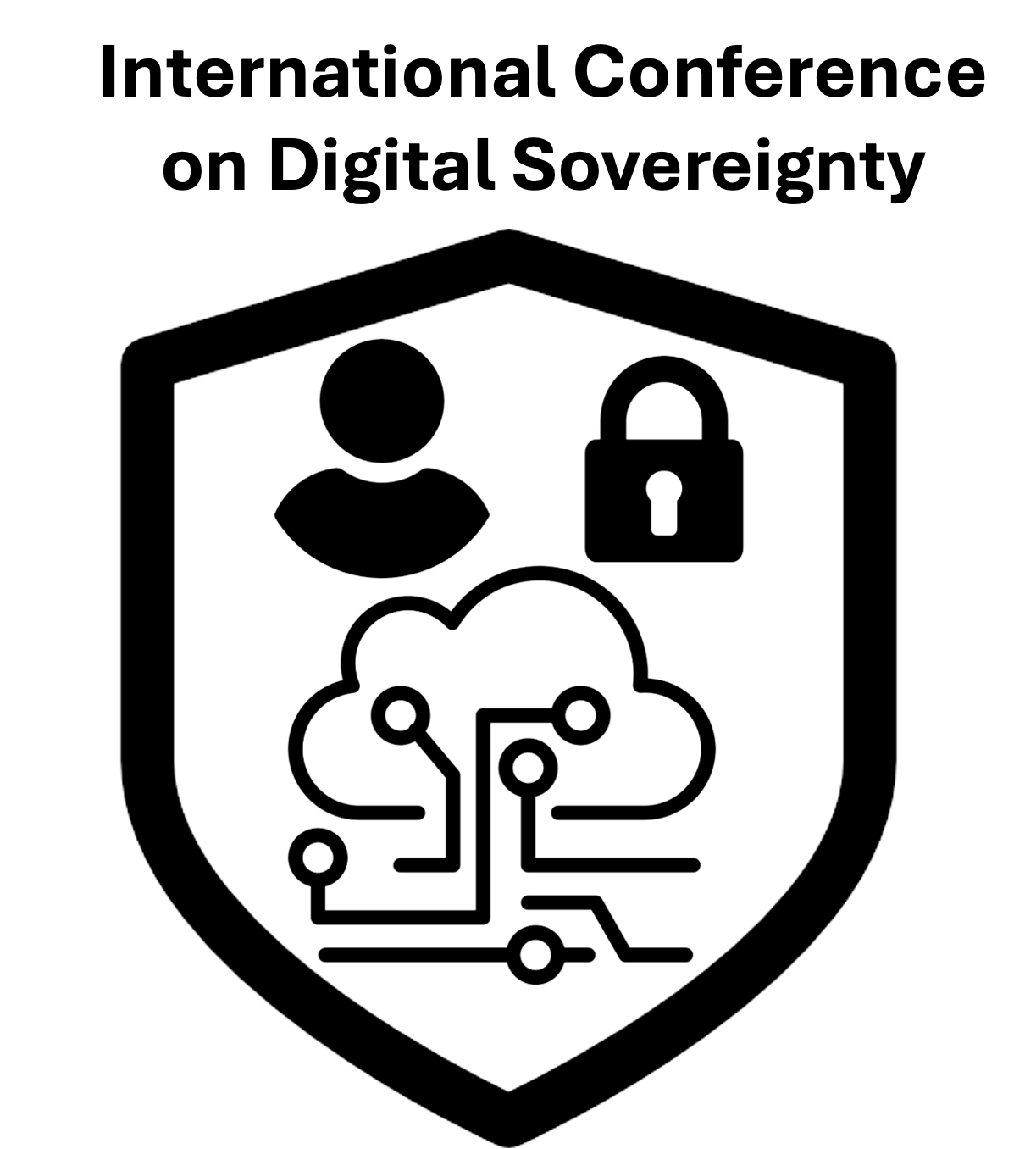
Sponsored by
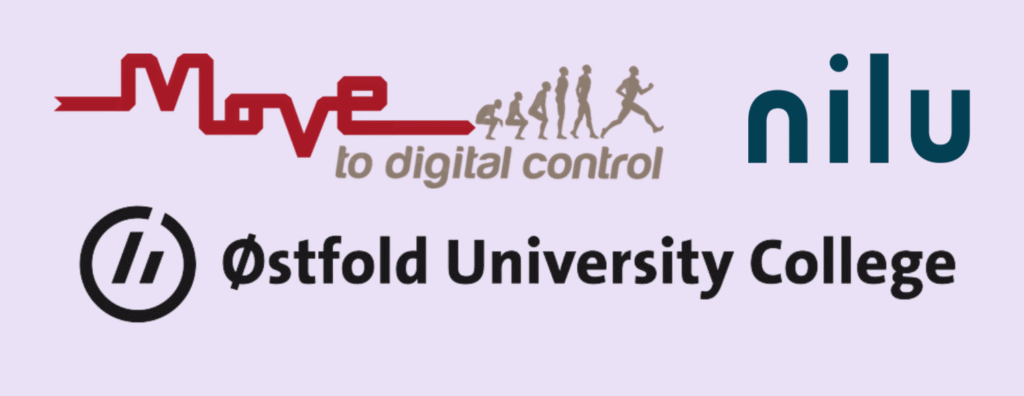
Supported by
